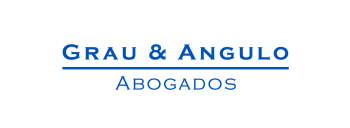On 24 January 2019 Section 8 of the Alicante Provincial Court (acting as the EU Trademark Court) dismissed Equivalenza Retail, SL's appeal against the Alicante Commercial Court Number 2 judgment of 13 February 2017, in which it had been sentenced for infringing various perfume trademarks owned by Hugo Boss, Gucci and Lacoste in the context of its smell-alike business.
The following parties filed suit against Equivalenza for selling and marketing smell-alike perfumes and making unauthorised use of their registered trademarks:
- Guccio Gucci SpA;
- Hugo Boss Trademark Management GmbH & Co KG;
- Lacoste SA;
- Procter & Gamble International Operations SA; and
- Procter & Gamble Prestige Products SAU (now HFC Prestige Products SAU).
Equivalenza had used the plaintiffs' trademarks both in comparison lists and orally in commercial speech, in which it had linked the numerical references of its smell-alike perfumes with the marks of the perfumes which they allegedly imitated.
The first-instance court declared that Equivalenza had:
- infringed the plaintiffs' well-known trademarks in a parasitic manner by taking unfair advantage of their reputation, attractiveness and prestige (Article 9.1 of the EU Trademark Regulation (2017/1001)); and
- undertaken acts of unfair competition by:
- taking unfair advantage of the reputation of other market players; and
- undertaking illegal comparative advertising by presenting its products as imitations or replicas (in smell) of those of the plaintiffs.
Equivalenza appealed the first-instance court's decision on both procedural and substantive grounds. Among other substantive grounds, it argued that it was not liable for acts committed at points of sale since it had complied with an earlier conviction for similar acts handed down in Puig in 2014. Thus, it claimed that:
- it had prohibited stores from using the trademarks for the original perfumes which it had allegedly imitated (both in comparison lists and orally); and
- any such use was thus not attributable to Equivalenza.
In addition, it argued that, in any case, such use of the plaintiffs' marks would have been internal, innocuous and necessary to describe the aroma of its perfumes.
The EU Trademark Court dismissed Equivalenza's appeal.
The court discussed the EU Trademark Court case law on the use of comparison lists for the marketing of perfumes in the context of trademarks and unfair competition (there have been six judgments in this regard since 2014). It pointed out that:
- such case law has repeatedly confirmed the illegality of comparison lists; and
- Equivalenza had previously been sentenced for the same behaviour.
As regards trademark infringement, the court considered that the defendant's business was the bulk sale of perfumes through a network of stores. It also considered that the plaintiffs had proven that a significant number of stores used the plaintiffs' trademarks in comparison lists or orally, it held that the origin of the smell-alike perfumes was fully attributable to Equivalenza. Further, Equivalenza's business model was based on the use of well-known trademarks to sell smell-alike perfumes.
The court also considered that:
- the use of comparison lists constituted the use of third-party trademarks in the course of trade; and
- Equivalenza had done this in order to take advantage of the well-known reputation of said marks.
The court stated that the defendant's business model could have been implemented with exclusive reference to olfactory fragrances or smells without the use of third-party marks. However, according to the court, the plaintiffs had proved that the defendant's business was based precisely on this use of third-party marks to take advantage of their reputation and prestige. According to the court, it was precisely this undue advantage on which its finding of trademark infringement was based.
As regards unfair competition, the court considered that Equivalenza's commercial behaviour had been based on the offering for sale and marketing of imitation goods through the use of the plaintiffs' well-known trademarks. In this context, it considered that Equivalenza had committed acts of:
- unlawful comparison;
- exploitation of the plaintiffs' reputation; and
- unlawful comparative advertising.
Consequently, the court confirmed the first-instance decision, which had ordered Equivalenza to:
- cease and desist from marketing its perfumes using the plaintiffs' trademarks;
- withdraw and destroy its comparison lists and any other means of advertising containing the plaintiffs' trademarks;
- compensate the plaintiffs; and
- publish the judgment.
The court also ordered Equivalenza to change the numerical references that it had been using alongside the plaintiffs' trademarks in order to prevent consumers from further associating the two.
Equivalenza has appealed this ruling before the Supreme Court.
This article was first published by the International Law Office, a premium online legal update service for major companies and law firms worldwide. Register for a free subscription.



